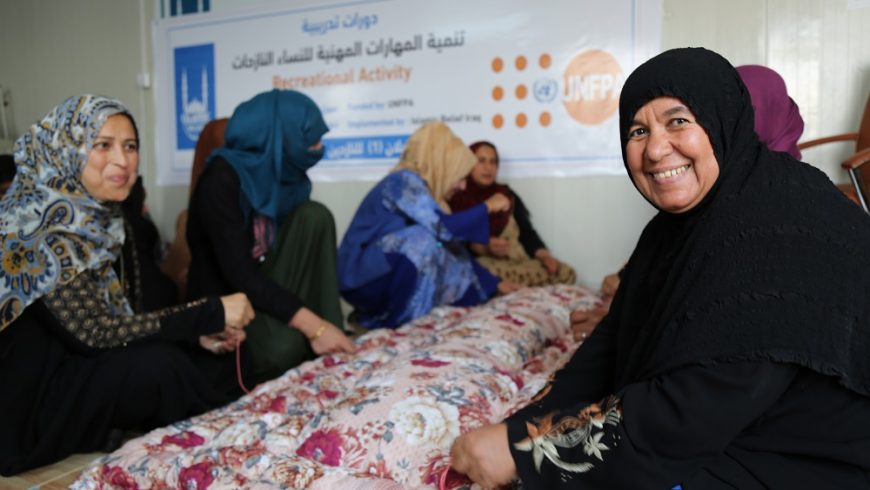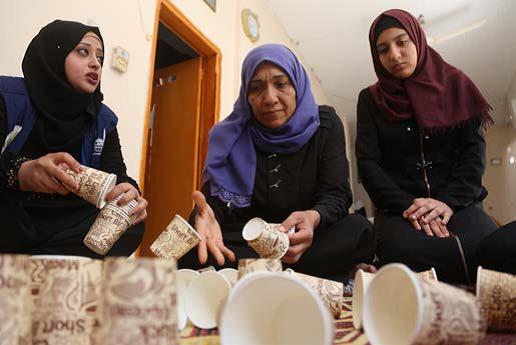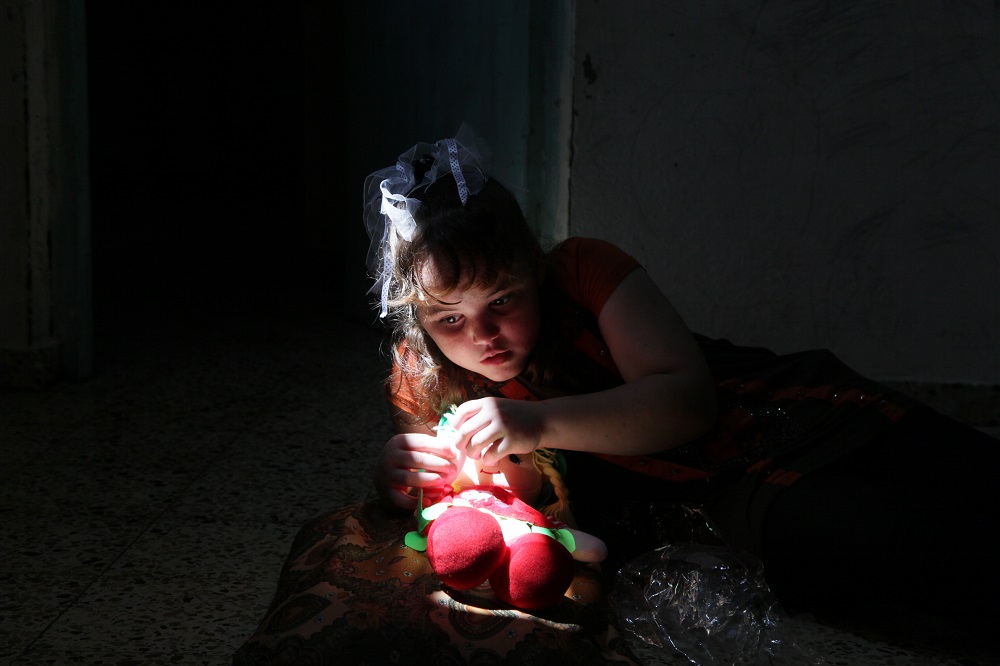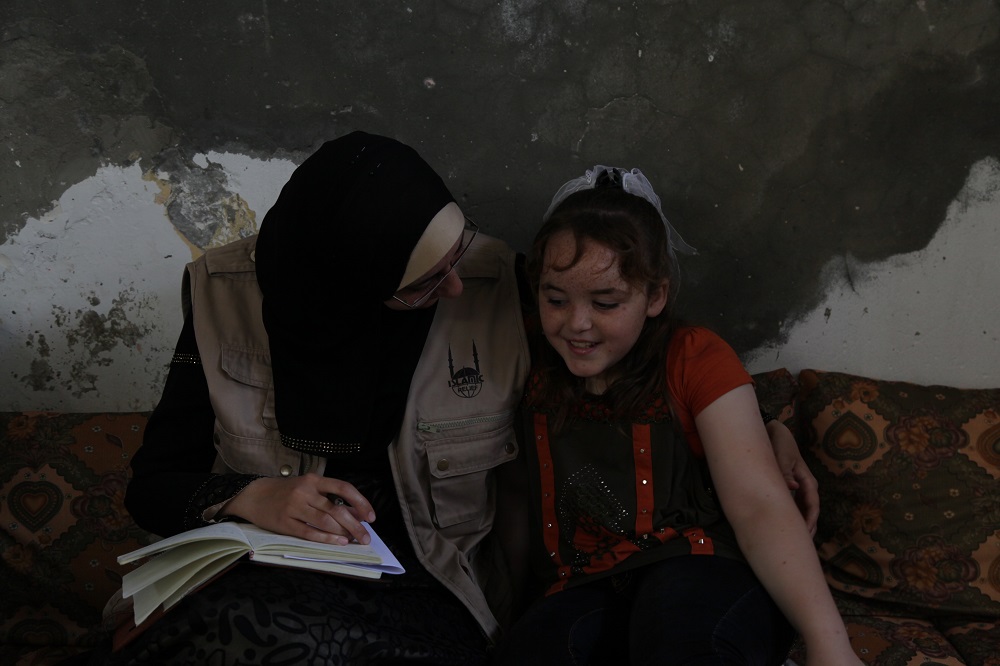Islamic Relief is supporting families in the Occupied Palestinian Territories to improve their mental health.
“After my divorce, my four children and I moved in with my parents,” says Sana, who lives in Al Bureij refugee camp in Gaza. “We faced several difficulties, which affected our personalities and the way we dealt with each other.
“I suffered from severe psychological stress as I was responsible for four children, which was very difficult when I had no financial assistance. I usually felt very angry and nervous which negatively affected my relationships with my children.”
For nine years she and her family lived in tension. But then they accepted help from Islamic Relief.
“When the psychologist first called me to tell me that they would like to visit us at home to do [counselling] sessions, I wasn’t sure about talking to strangers at first. This would be my first time discussing my life with outsiders and receiving support.
“When the first session ended, I felt very comfortable. My children also loved it and asked to continue the sessions. Our life started to improve from then on. Islamic Relief managed to bring us together and helped us spend time together.
“I then started to integrate my older siblings in the sessions, since we all live in one house. Islamic Relief was the catalyst that helped our family come together and heal. Islamic Relief helped us restore ties that were severed over the years. It spread an atmosphere of love and understanding between my family members. I’m really proud of what we have achieved; we became a united family.”
Learning positive coping strategies
In addition to the family counselling sessions, Sana, her son Hamza and her older sister Raja participated in individual counselling sessions which have empowered them to better cope with stress.
“The specialists helped me so much. I overcame several issues that were troubling me and they taught me how to deal with my problems in a healthy way. One of the main things I suffered with was my divorced status, as I found it very difficult to go out of the house and into society. I refused to participate in any community activities or visit anybody,” says Sana.
“One of the key breakthrough moments was when I told the specialist that I like doing embroidery. She supported me to participate in an embroidery exhibition. This helped to change how I interacted with people and I started to go out and meet new people and became an active member of my community. Now I have made new friends and have stronger relationships with people.”
Coming to terms with grief and domestic violence
Um Mustafa also lives in Gaza. After her husband’s death she and her children lived with her late husband’s family. They regularly experienced abuse at the hands of her brother-in-law, until he tied her daughter, Halima*, with electrical wires and beat her.
Um Mustafa fled with her children, but while they were safe from domestic violence they had no breadwinner. Paying rent was difficult and the family had no refrigerator, gas or furniture. Halima continued to suffer the effects of trauma. She wet the bed, hit her siblings, ripped out her hair, and ran away when she was afraid or angry.
The family desperately needed support. They began receiving a regular stipend through Islamic Relief’s orphan sponsorship scheme, as well as regular visits by our social worker, who kept an eye on their welfare.
During one such home visit it emerged that Halima needed extra support, so psychosocial specialists were brought in to work with the girl and her family. Coming to terms with the traumatic events she had experienced, Halima was finally able to talk to her mother about her grief for her father.
“I am so happy and thankful for your support and kindness,” says Um Mustafa. “I hope you will continue your care and kindness with Halima so that she can live a normal life like other children.”
Mental health issues and distress can make a lasting impression on children’s development. Without suitable care and support, children can struggle with their mental and physical health for their whole lives. Islamic Relief is trying to respond to the vast needs of children and families by advocating for critical mental health support within conflict and humanitarian settings.
*Name changed to protect her identity



